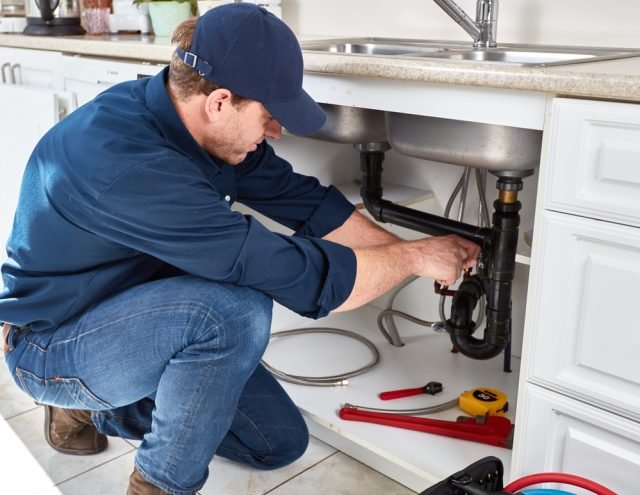How many of us have found ourselves in a state of despair, eyeing an explosion of water from a burst pipe, or mopping up a flooded bathroom? Perhaps you’ve had the unpleasant experience of discovering a blocked kitchen drain, resulting in a nauseating smell permeating throughout your home. It’s in these dire moments that we wish we had paid more attention to our home’s plumbing systems, isn’t it?
In this comprehensive guide, we endeavour to arm you with the knowledge necessary to avoid common domestic plumbing calamities. Borrowing from the depths of experienced plumbers‘ wisdom, we’ll illuminate the most frequently encountered issues, enlighten you on their prevention, and, provide guidance for those times when professional intervention is required.
Think of this as your secret weapon for managing your home’s plumbing setup efficiently and proactively, reducing stress, financial strain and, well, the element of unexpected water-related surprises.

Table of Contents
Understanding the Plumbing Basics – Why is it Important?
Plumbing is one of those elements of home ownership that seems to slide under the radar until it refuses to be ignored. You see, understanding the fundamentals of your home’s plumbing is not merely for the armchair DIY enthusiast. It offers a sense of preparedness. But why do we need to be prepared, you might ask?
Think of your home as a living, breathing entity. Much like the blood vessels in our bodies, the plumbing system is the lifeline for your home. If damage occurs or blockages arise, the entire system can backfire, resulting in various unpleasant situations.
An essential understanding of the basics of your home’s plumbing system can prevent minor issues from escalating into major ones. If we become proactive rather than reactive, we potentially avoid costly repairs and periods of inconvenience.
Preventative Measures – How to Dodge Plumbing Disasters?
Plumbing problems are a bit like catching a cold; prevention is always better than cure. Experienced plumbers would agree that a few regular practices can help ward off most plumbing issues.
Firstly, being mindful of the waste that goes down your drains is vital. Whether in the kitchen or the bathroom, certain items and substances should never be flushed or drained. Does your toilet frequently clog? Revisit what you’re flushing down. Is your kitchen drain emitting a foul smell? Rethink what you’re disposing of in the sink.
Secondly, remember to maintain your water heaters, tune your taps and, keep drains clear. Trust us, when done consistently, these simple habits equate to happier plumbing systems.
Recognising the Signs – When to Call a Professional?
Recognising the early signs of potential plumbing issues could save you a headache (and a definite hit to your wallet). Strange gurgling noises, slow drains, water backing up in your sinks, or drastic changes in water pressure are definite red flags that need immediate attention.
A sporadic dripping faucet might seem like a minor annoyance, but it could be indicative of a more significant problem. If identified early, these issues can usually be resolved with minimal fuss, but if left unheeded, they can morph into insurmountable problems.
When such signs start showing up, it’s wise to call a professional. Some things are best left to the experts, after all.
The Pros and Cons of DIY Plumbing
There’s a sense of satisfaction in DIY home improvements, isn’t there? While there’s no harm in minor repairs and maintenance, attempting to rectify significant plumbing problems may do more harm than good.
On the one hand, DIY plumbing can save you some dollars, and there’s a wealth of knowledge available on the internet. On the other hand, without proper tools or understanding, even a small error can lead to severe damage. Bottom line? Unless you are confident, it’s safer to leave the tools in the hands of a professional.
The Need for Regular Maintenance
Like most things in life, consistency is crucial for maintaining a healthy plumbing system. Regular checks and basic maintenance can help prevent small issues from growing into significant problems. This not only saves time and money, but it also reduces annoying interruptions to our domestic bliss.
Conclusion:
Your home’s plumbing system is an integral component often overlooked, yet its smooth functioning is crucial for a comfortable living environment. Understanding the basics of your plumbing system, adopting preventative measures, recognising warning signs and seeking professional help when needed, are all steps towards avoiding common plumbing issues.
Remember, the cost of preventative maintenance is often far less than the price of major repairs. So let’s give our plumbing systems the attention they deserve, and in return, they’ll grant us the peace of living in a trouble-free home.








